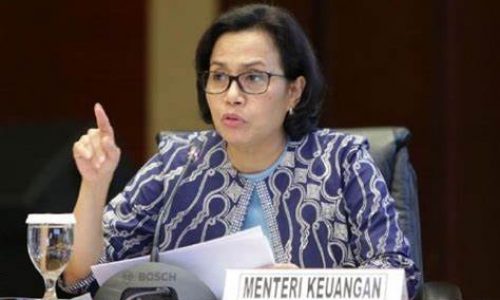Domestic Market Obligation (DMO) is an obligation to fulfill domestic needs for domestic oil companies or contractors. The DMO is intended for business entities with legal entities that operate types of businesses that are permanent, continuous, and established in accordance with applicable laws and regulations, both working and domiciled in the territory of the Unitary State of the Republic of Indonesia as well as business entities established and incorporated outside Indonesia’s territory and must comply with the laws in force in the Republic of Indonesia.
Governing laws and regulation
- Law No. 4/2009 concerning Mining
- Law No. 3/2020 concerning Amendment to the Mining Law (Law No. 3/2020) as amended by Law No. 11/2020 concerning Job Creation
- Ministry of Energy and Mineral Resources Regulation (Permen ESDM) No. 25/2018 concerning Mineral and Coal Mining Business as amended several times with the latest amendment by the Minister of Energy and Mineral Resources Regulation (Permen ESDM) No. 17/2020 concerning the Third Amendment to the Regulation of the Minister of Energy and Mineral Resources (Permen ESDM) No. 25/2018 concerning Mineral and Coal Mining
- Ministry of Energy and Mineral Resources Regulation (Permen ESDM) No. 7/2020 concerning Procedures for the Granting of Areas, Licensing, and Reporting in Mineral and Coal Mining Business Activities
- Ministry of Energy and Mineral Resources Regulation (Permen ESDM) No. 7/2017 concerning Procedures for Setting Standard Prices for Sales of Metal and Coal Minerals
- Decree of the Ministry of Energy and Mineral Resources (Kepmen ESDM) No. 1827 K/MEM/2018 concerning Guidelines for Implementing Good Mining Engineering Principles
- Decree of the Ministry of Energy and Mineral Resources (Kepmen ESDM) No. 261/K/MEM/2019 concerning Coal Domestic Market Obligation in 2020
Introduction
This policy is intended to guarantee the supply that is necessary for meeting the increasing domestic demand, especially for coal. The government has the authority to control the production and the export of each mining product. The regional administration is obliged to comply with the production and export controls that are imposed by the government.
Policy
Kepmen ESDM No. 261/K/MEM/2019 stipulates that the holders of Coal Contract of Work (“CCoW”) at the Operation Production stage, coal of Operation Production Mining Business License or Izin Usaha Pertambangan Operasi Produksi (IUP-OP) and coal of Operation Production Special Mining Business License or Izin Usaha Pertambangan Khusus Operasi Produksi (IUPK-OP) are required to meet the minimum coal DMO of 25% of their 2020 production plan, as approved by the energy ministry or the governor and in accordance with the sales contract. If the minimum percentage cannot be fulfilled, the obligation to pay compensation for a number of coal sale shortfalls for domestic interests will be imposed. In addition, if the DMO under the sales contract is not fulfilled, there will be an additional sanction in the form of a reduction of the production quota amount for the following year. Such amount will be based on the number of volume shortfalls in fulfilling coal needs according to the sales contract.
Price benchmark
The energy ministry, through the directorate general of mineral and coal (DGoMC), will be responsible for setting the benchmark prices for coal and metal minerals.
The benchmark price serves as the floor price for the Government Royalty calculation. If the actual sales price is higher than the benchmark price, then the Government Royalty will be based on the actual sales price. If the actual sales price is below the benchmark price, then the Government Royalty should be based on the benchmark price.
The benchmark prices for metal minerals and coal are based on the benchmark price formula, which takes certain factors into account. For metal minerals, these factors include, but are not limited to, the value/content of the metal mineral; the HMA (reference mineral price); corrective factors; treatment costs; and refining charges. For the determination of the coal benchmark prices, examples of these factors include the calorific value of coal; the HBA; moisture content; sulfur content; and ash content.
Where coal is sold on a term basis, the HBA that is used as the reference for determining the price of coal in the sales contract is based on the formula of 50% of the HBA (reference coal price) in the month of the signing of the contract, plus 30% of the HBA in the month prior to the signing of the contract, plus 20% of the HBA two months prior to the signing of the contract. This formula was introduced in the Permen ESDM No. 7/2017.









